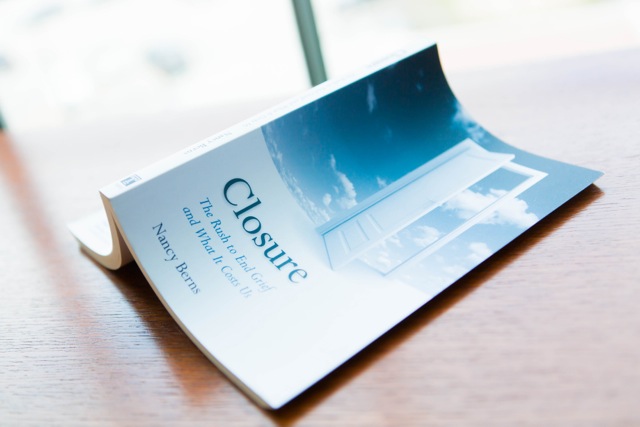Author note: Many years ago I wrote this article and it seems like an important time to post again and reflect on how to support those who are hurting. Give yourself and others the grace needed during these complicated times.
Mother’s Day can be a miserable day. Countless women and children mourn for a mother-child relationship that is not as it should be. The hallmark cards and commercials depict Mother’s Day as all smiles. But for many people, the celebration taps into pain and sorrow.
I know.
The first Mother’s Day I experienced after my baby died was awful. Well, every day was hard then. But on that day in particular the pain lunged at me from all sides. Nothing was going to stop the pain, but I remember a gesture that did bring a measure of comfort. My sister sent a card with a note encouraging me that one day I’d have a special reunion with my son. It meant a lot to me because she understood that I was a mom, even though my son had died. I still have that card.
Mother’s Day can be an opportunity to not only celebrate but to remember and comfort others. The day need not be happy to be important. Often we struggle in responding to people who are sad, but here are a few ideas to help you start. 
To someone aching to be a mother, but who has not been able to conceive or who has experienced a miscarriage, give her flowers with a note saying you remember her. Do not try to make her pain go away. Just let your presence be known.
To someone grieving the death of a child, whether a few months ago or many years, ask about her son or daughter. Ask if she would like to share stories and memories. Even if she is not able to at that moment, she’ll be thankful someone remembered. Donate to a charity in memory of her child and let her know. Even if a mother has other living children, she still misses her child who died.
To adults grieving the death of a mother, whether a few months ago or many years, ask them what was special about their mothers. “What do you remember most? What lessons did she teach that remain in you?”
To children grieving the death of a mother, whether a few months ago or many years, ask how they feel about Mother’s Day. Give a child an opportunity to cry, to ask questions, to know it is okay to be sad or confused. Also, let children know that laughing and loving others does not take away from their love for a mother who died.
To a mother whose child is across the globe fighting in a war: Pray for peace. Let her talk about her fears. Don’t try to take away her fear, just listen.
To women who chose, or were forced, to give up babies through adoption or abortion, give them space to mourn. Acknowledge their loss. They don’t need more judgment.
To adult children whose mothers abused them growing up, listen to their pain. Ask if there are other women in their lives that have been special to them. Would they want to honor those women? Recognize the balance between acknowledging their pain and knowing that there are others who love them.
To little children whose mothers are not able to properly take care of them, see if there is a way you can help.
To women who have stepped up to help take care of other people’s children, recognize and thank them. Motherly love is not restricted to a biological relationship.
To mothers who have a strained relationship with a child because of drugs, prison, mental illness, arguments, or family conflict, encourage them. Don’t dismiss their pain, but offer hope. See if there are other ways you can help. The same goes for a child whose mother is struggling with these problems.
If it is your relationship with a child or a mother that is strained, offer forgiveness or an apology. Reach out. Decide this Mother’s Day to try again.
If you are the one grieving for a child or a mother, give yourself freedom to grieve, to remember, to laugh, to cry. Find a way to honor the life and love that you were granted.
May you find peace and comfort this Mother’s Day as you remember those you love.


My mother abused me when I was a child, she abandoned me many times, and for the last time when I had just turned 15. I loved my mother anyway. I always excused her, defended her, forgave her, and hoped for her return. Then when I was 16 I found a pile of letters she had written about how much she hated me. Pages after pages of bile, and not just once in a moment of anger- she wrote the same thing over and over many times over many years. She kept detailed lists, and the worst part was I could make no sense of them, find no real answers in them. She was enraged about things like the handprint-in-clay mother’s day gift I gave her once, because it was painted bright orange. I have no idea why she found bright orange so upsetting. There was no logical reason for her to hate me, but she did hate me. I would like to say she was probably just mentally ill, but there are many with mental illness who are not hateful at all, especially towards their own daughter. On mother’s day I still feel loss and longing, confusion and guilt- guilt because even though I can’t put my finger on it, surely there must be something terribly wrong with me for my own mother to hate me. In a culture where we do not admit that it is even possible for a mother to hate her child, what can be said to people like me?
Thank you for sharing your difficult experiences. I would say you are worthy of love and did nothing as a child to deserve what you’ve described. That’s the main message I’d want you to hear. I”m sorry for the pain you continue to bear. I do not know what happened with your mom, and as you say, there could be mental illness involved. People respond to mental illnesses very differently. I would encourage you to find a support group of people who have experienced abuse as a child so that you’ll realize you are not alone and perhaps would benefit from talking more with others. You have a place in this world, and I pray you’ll be able to find peace as you heal.
Thank you, I appreciate your thoughtful reply. I’m sorry for your loss as well. It seems to be a difficult day for a lot of people for a lot of reasons.
Nancy,
Always enjoy and appreciate your writing. It’s important to remember that days like today can also bring pain and re-open wounds. Thanks for sharing your insights.
Shelley
Thanks, Shelley!